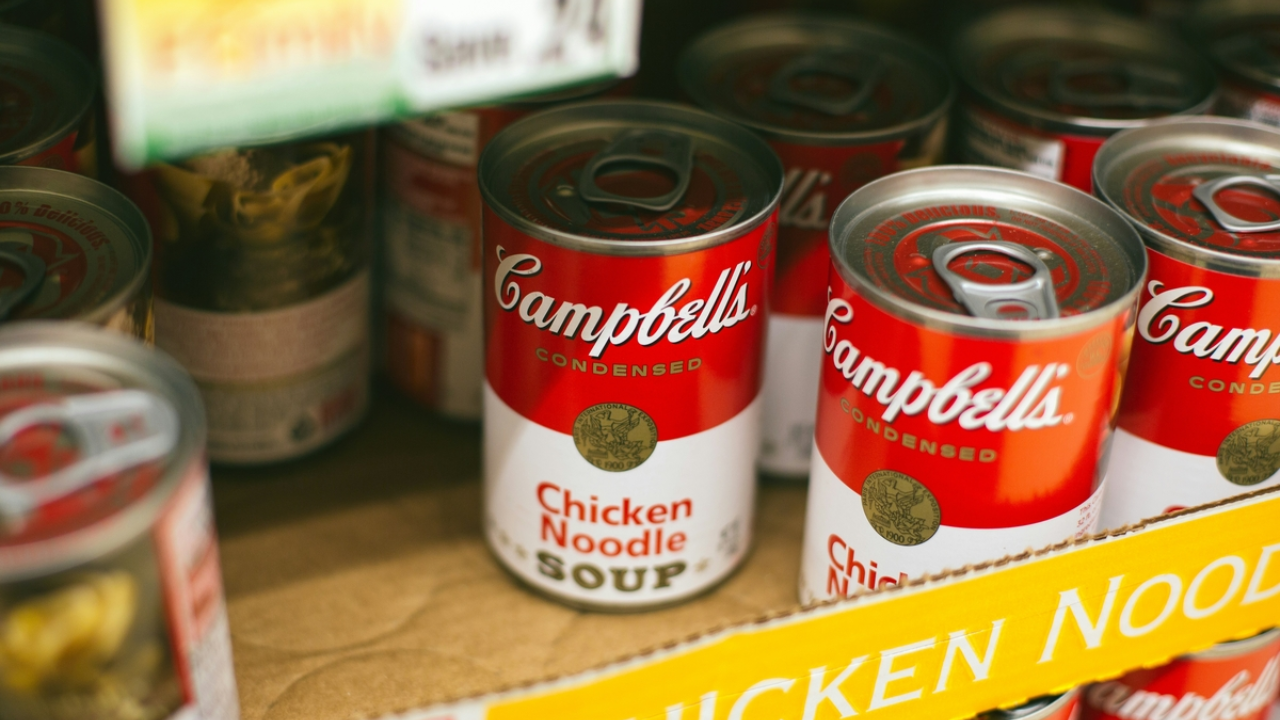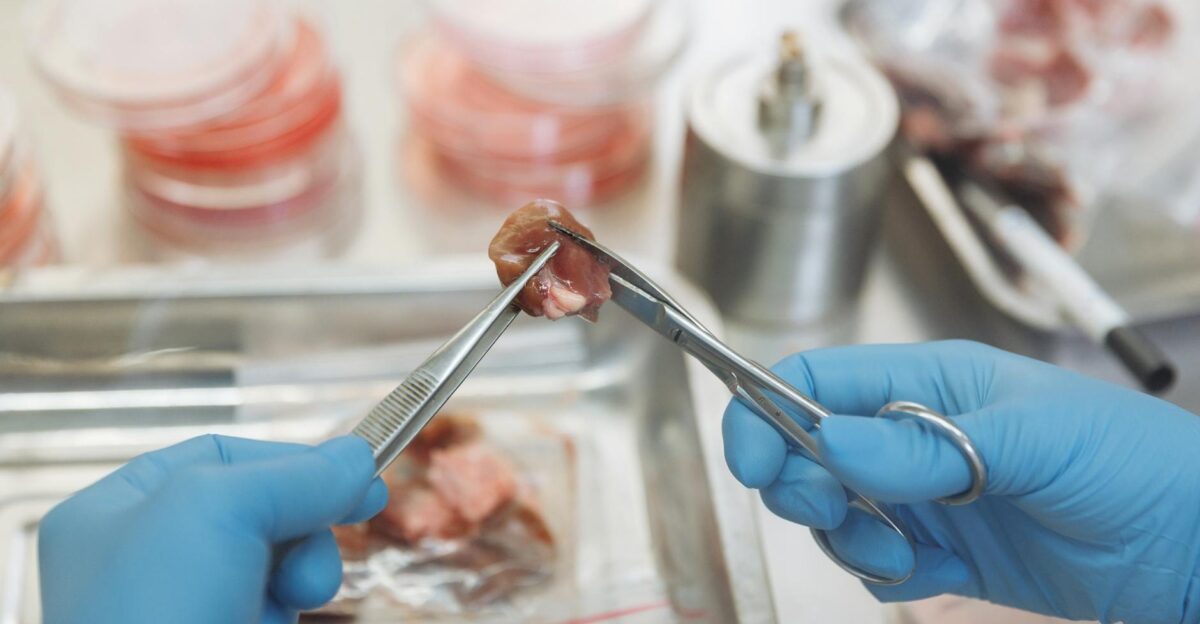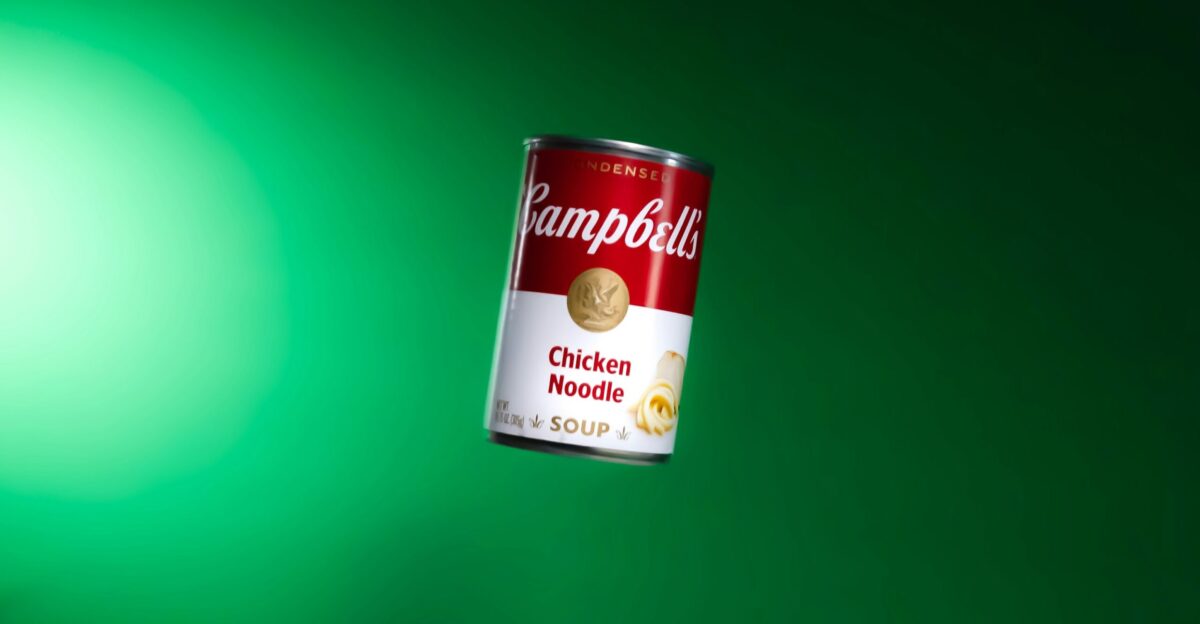
A leaked audio recording has triggered one of the most damaging corporate scandals in recent memory for Campbell Soup Company. The alleged recording captures Martin Bally, the company’s Vice President of Information Technology, making statements about the use of 3D-printed and bioengineered chicken in Campbell’s soups. Within days of the scandal’s public exposure, the company’s market capitalization declined significantly—a loss that reflects the speed and severity of consumer trust erosion and regulatory scrutiny spreading across multiple states.
The Whistleblower’s Account
Robert Garza, a cybersecurity analyst hired by Campbell’s in September 2024, secretly recorded a meeting with Bally in November 2024. Garza reported the alleged admissions to his supervisor, J.D. Aupperle, in early January 2025. Twenty days later, on January 30, 2025, Garza was terminated without explanation. His wrongful termination and retaliation lawsuit now alleges that Campbell punished him for attempting to report corporate misconduct—a claim that adds legal complexity to an already volatile situation.
The Disputed Allegations
The leaked audio allegedly captures a voice saying: “I don’t want to eat a piece of chicken that came from a 3D printer, do you?” The same voice describes Campbell’s meat as “bioengineered” and intended “for poor people.” These remarks were documented in legal filings and confirmed by major media outlets, including ABC News and Business Insider. The recording reportedly contains additional disparaging comments about the company’s customer base and allegedly includes offensive remarks about Indian employees. Combined with the ingredient concerns, these statements triggered swift regulatory and investor reaction across state lines.
Campbell’s Response and Regulatory Action

On November 26, 2025, Campbell’s confirmed that the company no longer employs Martin Bally. The company issued categorical denials: “Campbell’s does not use 3D-printed chicken, lab-grown chicken, or any form of bioengineered meat in our soups.” The company clarified that “bioengineered food ingredients” referenced on its labels refer to genetically modified crops such as corn and soybeans, not chicken. However, the company has not addressed whether it has explored or piloted 3D-printed chicken technology internally—a silence that has fueled ongoing skepticism among consumers and investors.
Florida Attorney General James Uthmeier launched an investigation on November 24, stating: “Florida law bans lab-grown meat. Our Consumer Protection division is launching an investigation and will demand answers from Campbell’s.” The regulatory action carries enforcement teeth, as violations of Florida’s lab-grown meat ban can result in consumer protection penalties and potential operational restrictions. The scrutiny reflects a broader pattern of state-level enforcement: Florida has joined Alabama, Arizona, and Tennessee in banning lab-grown meat cultivation and sale within their borders. This multi-state regulatory alignment, combined with federal scrutiny and media coverage spanning coast to coast, has created an unprecedented coordinated alert regarding the company’s practices and product integrity.
Market Impact and Consumer Trust

Campbell’s stock experienced significant decline as the scandal rippled through markets and regulatory bodies. Before the scandal broke, Campbell’s stock had traded as high as $32.72 in late September 2025, representing a market capitalization approaching $9.7 billion. By late November, following the public exposure of the recording and subsequent regulatory investigations, the stock declined to approximately $30.24, reducing the company’s market value to approximately $9.0 billion—representing an aggregate decline of nearly $700 million from pre-scandal September highs to post-scandal November lows. The most severe contraction occurred during the scandal disclosure period, when the stock dropped from $31.03 on November 18 to $30.24 by November 26, erasing roughly $240 million in market value within just one week.
This destruction of shareholder value occurred during the critical holiday shopping season, compounding the financial damage at the worst possible time for consumer packaged goods companies dependent on holiday sales.
The scandal strikes at the heart of Campbell’s brand identity. Founded in 1869, the company has symbolized American comfort, affordability, and trust for 156 years. Millions of families rely on Campbell’s chicken soup as their most affordable and trusted comfort food, particularly when children are ill. Social media erupted with calls for boycotts and consumer concerns as parents nationwide questioned what they have fed their children for decades. Generational loyalty fractured overnight as the century-plus legacy of maternal trust faced unprecedented challenge.
The Technology Context

This scandal does not occur in isolation. In 2020, KFC partnered with Russian bioprinting firm 3D Bioprinting Solutions to develop 3D-printed chicken nuggets using chicken cells and plant protein. The project was public, experimental, and never commercialized—but it demonstrated that the technology exists and that multinational food companies explore it. That demonstrated capability adds context to the allegations now facing Campbell’s and raises questions about whether similar research may have occurred within the company.
The Path Forward

Campbell’s faces an unprecedented test of consumer trust. The company’s continued emphasis on compliance statements and USDA standards has not fully addressed the credibility gap created by the scandal. Full transparency about whether the company has explored 3D-printed chicken technology—even without current use—could help rebuild trust. The refusal to answer such questions risks allowing speculation to metastasize into deeper skepticism. For a company built on generations of maternal trust and household loyalty, the hard work of rebuilding consumer confidence begins now—if it remains possible at all.
—
Sources:
Campbell’s Soup Company Official Statement, November 25–26, 2025
Garza v. Campbell Soup Company et al., Wayne County Circuit Court, Michigan, November 2025
AP/Reuters Business Wire Archives, November 25–26, 2025
Financial Content Markets Data, CPB Stock Trading Record, November 19–26, 2025
Florida Attorney General James Uthmeier Official Announcement, November 24, 2025
KFC/3D Bioprinting Solutions Partnership Documentation, July 2020